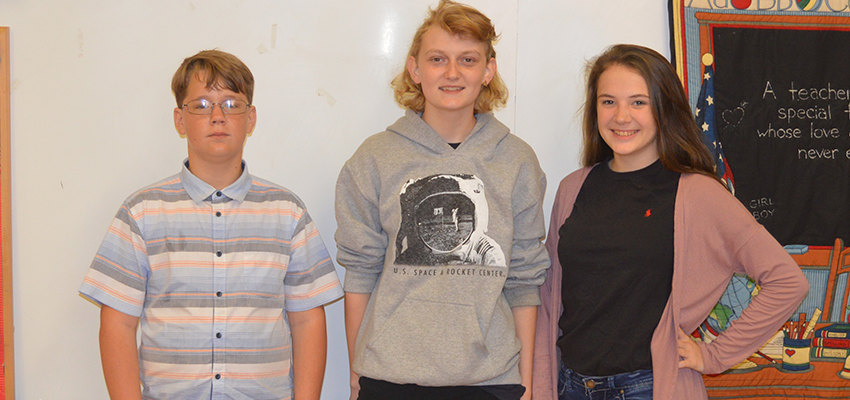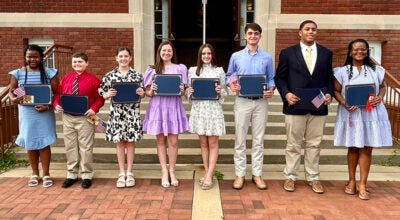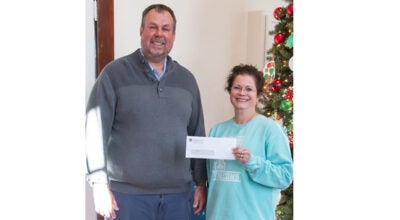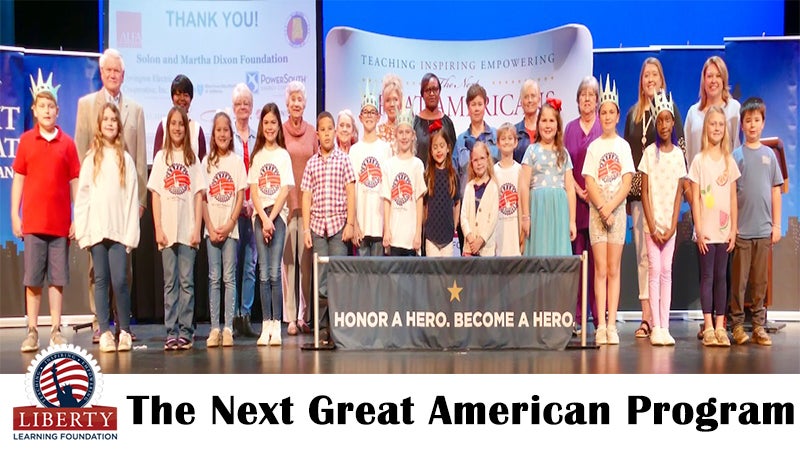Innovative city design earns students honors
Published 12:10 am Tuesday, March 20, 2018

- William Baxley, Maggie Nixon and Bella Dampier placed third in the Alabama Regional Future City Competition in Huntsville.
A group of Fleeta sixth, seventh and eighth graders used innovative ideas and interesting energy systems to place third at the Alabama Regional Future City Competition in Huntsville.
The three students sent to present their project were Maggie Nixon, Bella Dampier and William Baxley. Nixon and Dampier are both in eighth grade, but Baxley was the youngster of the group being in sixth grade.
“He [Baxley] is probably smarter than me,” Dampier said. “He really helped the group out when we needed it.”
Mrs. Valerie Brownley is the school’s math and science teacher so she helped guide the students in the right direction.
“This entire project was student led,” Brownley said. “I can’t begin to describe how proud I am of them and the work they have done.”
The Alabama Regional Future City Competition is a statewide, project-based learning experience in which students in sixth, seventh and eighth grade imagine, design and build cities of the future.
Students work as a team with an educator and engineer mentor to plan cities using SimCity software; research and write solutions to an engineering problem; build tabletop scale models with recycled materials; and present their ideas before judges annually at the regional competition.
Brownley said that each year there is a different theme for the city they make. This year’s theme was building an innovative city that catered to the elderly population.
“I think the name of our city was the best thing that we came up with,” Nixon said. “We called it Gerasarete.”
Geras is the god of elderly spirits, and arête translates from Greek to excellence and virtue.
“We did a lot of research on Greece, because that is where our city was located,” Baxley said. “We had to plot out the city, look up the weather and we came up with five different energy systems.”
The group won an award for their innovative ideas on energy systems, which came with money that will go back into the science department.
“We had no fossil fuels,” Baxley said. “Instead we used ambient energy, solar energy, wind powered turbines and a water filtration site.”
The group had some help with costs by earning the Bright Ideas Grant from Covington Electric.
After being selected in the top five, the group had to present their project in front of 300 people.
“It was pretty nerve racking,” Baxley said. “I’ve never had to do that before and the other girls have so I think I was the only nervous one.”
Out of 20 teams, Fleeta placed third.
“Again I can’t explain how proud I am of them,” Brownley said. “I look forward to competing again next year.”

Lexie Bush, Caitlyn Wilson, Whitney Tubberville and Emily Butts will fly to Charlotte, N.C., to compete in the GLOBE Southeast Regional Science Symposium.
Fleeta also has another group of four seventh grade girls who are participating in the GLOBE Southeast Regional Science Symposium at the University of North Carolina.
Lexie Bush, Caitlyn Wilson, Whitney Tubberville and Emily Butts have been working on the project for about a month.
“They came up with the idea to test the PH levels in soil at Lake Frank Jackson,” Brownley said. “It is a completely student led investigation.”
The girls said that they will be testing their hypothesis soon. They believe that if the farther away from the shore they go, the more basic the soil becomes.
“Even if we are wrong, we will have to say that our hypothesis was rejected and we have to tell the judges why,” Bush said.
The competition is based on a judge’s review and peer ratings. Last year Fleeta took a group to the competition and received four stars, so Brownley is hoping they can achieve the same thing this year.
The group will arrive in North Carolina on Thurs., April 19, and stay the entire weekend.
“I couldn’t have asked for a better group of girls to take to North Carolina,” Brownley said. “They are confident, bright and have been asking all of the right questions to be successful.”




